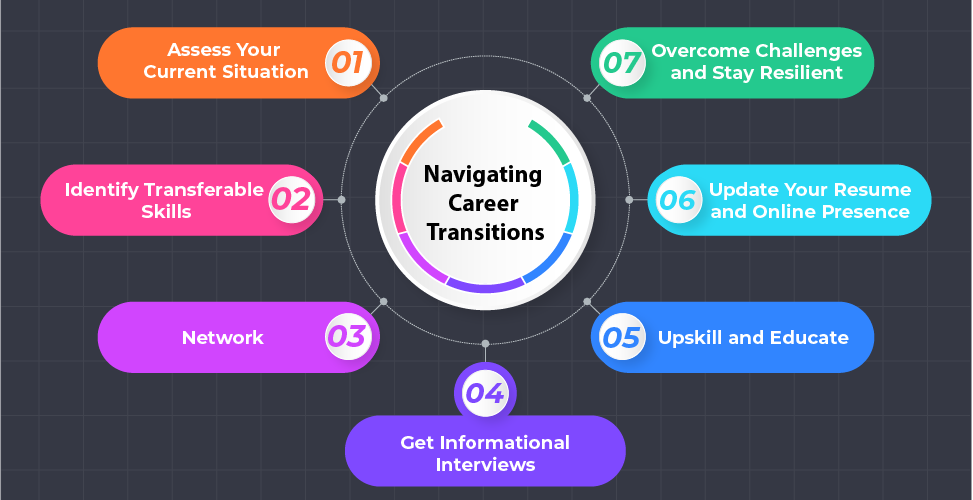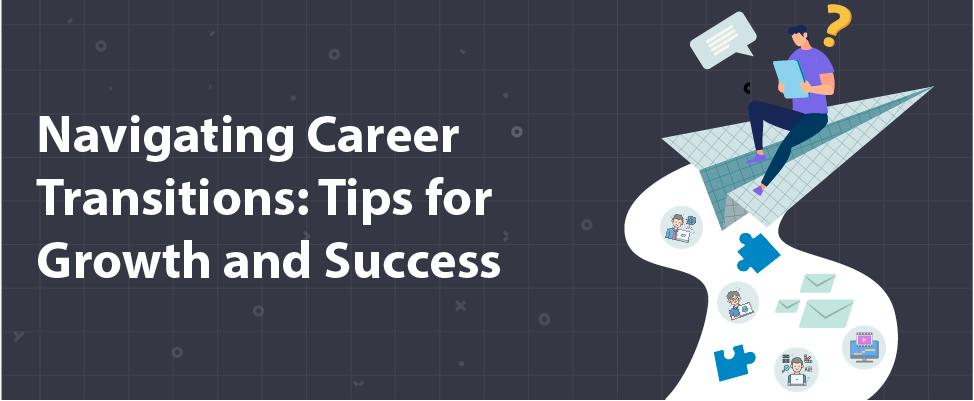Table of Contents
ToggleIntroduction

Don't miss out on your chance to work with the best
Apply for top global job opportunities today!
Tips to navigate career transitions smoothly

1. Assess Your Current Situation
Before making any major career changes, it’s essential to evaluate your current job satisfaction and career goals. Ask yourself:
- What do I enjoy about my current job?
- What aspects of my job do I find unfulfilling or stressful?
- What are my long-term career goals?
By reflecting on these questions, you can identify what you want to achieve in your new career and what aspects of your current job you wish to leave behind.
2. Identify Transferable Skills
One of the keys to a successful career transition is recognizing the skills and experiences you can bring to your new career. Transferable skills are those that are valuable in multiple industries, such as:
- Communication
- Problem-solving
- Leadership
- Project management
- Technical proficiency
Create a list of your skills and experiences, and then research how they can be applied to your new career path. Highlight these skills in your resume and cover letter to show potential employers your value.
3. Network
4. Get Informational Interviews
5. Upskill and Educate
In some cases, transitioning to a new career may require additional education or certifications. Identify any gaps in your knowledge or skills and seek out opportunities to fill them. This could involve:
- Enrolling in online courses or degree programs
- Attending workshops or seminars
- Gaining certifications relevant to your new field
Investing in your education demonstrates your commitment to your new career and makes you a more competitive candidate.
6. Update Your Resume and Online Presence
7. Overcome Challenges and Stay Resilient
Career transitions can come with their fair share of challenges, including potential setbacks and rejections. It’s important to stay resilient and maintain a positive mindset. Here are some tips to help you stay motivated:
- Set realistic goals and celebrate small victories.
- Seek support from friends, family, or a career coach.
- Stay flexible and open to new opportunities.
Learn from any setbacks and use them as opportunities for growth.
Must Read: WHAT ARE THE TOP 10 IN-DEMAND JOBS IN INDIA? Conclusion
Take control of your career and land your dream job
Sign up with us now and start applying for the best opportunities!

FAQs
It’s possible that your new career might not meet your expectations. Approach this scenario with an open mind and give yourself time to adjust. If after a reasonable period you still feel unfulfilled, don’t hesitate to reassess your goals and consider further changes. Each step is a learning experience that brings you closer to finding the right fit.
Be honest and confident when explaining your career transition in interviews. Focus on the positive aspects, such as your desire for growth, new challenges, and how your transferable skills make you a strong candidate for the role. Emphasize your commitment to the new career and any proactive steps you’ve taken to prepare for it.

